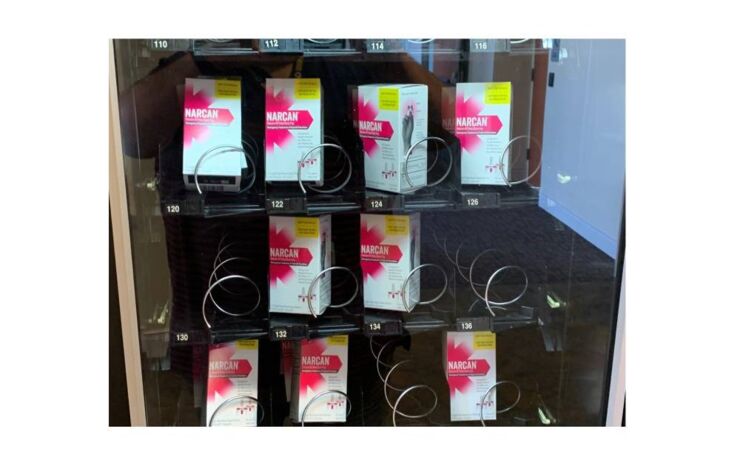As a way to save lives during a nationwide opioid crisis, Rogers will soon have the overdose-reversing drug naloxone and fentanyl test strips accessible for the general public at all three southeast Wisconsin campuses.
“We are proud of our dedication to evidence-based treatment, yet we must acknowledge areas where additional growth is imperative,” says Jim Hishmeh, director of addiction services. “In the realm of harm reduction for our substance use disorder patients, we recognize the urgency to enhance our care.”
In recent years, fentanyl, a potent synthetic opioid, has driven an increase in overdose deaths. According to the Wisconsin Department of Health Services, opioids were involved in 80% of overdose deaths in 2021, with fentanyl present in 91% of those deaths.
Recently, fentanyl has been found in nearly 80% of the heroin tested in Waukesha County and can also be present in other drugs such as pressed pills and cocaine, says Jim, who serves on the Waukesha Substance Use Advisory Committee. With community need at an all-time high, he says Rogers is responding. In early March, Rogers installed a vending machine with fentanyl test strips and naloxone at the Oconomowoc hospital campus.
Also known under the brand-name Narcan, naloxone is a safe, highly effective drug that reverses opioid overdoses. Waukesha County funds the vending machine and its products, which are provided by the Addiction Resource Council.
Jim says Rogers is also working with Milwaukee County to provide the same resources in Brown Deer and West Allis. In the meantime, Rogers has installed boxes with naloxone and fentanyl test strips in the vestibule right inside the doors in West Allis, with plans to do so in Oconomowoc and Brown Deer as well. The resources will be free and accessible to the public 24/7. The vending machine in Oconomowoc has a larger supply of naloxone and test strips and is located inside the lobby available during business hours.
“It’s crucial employees know where it’s located, first, and to have discussions with their patients and families about the importance of having Narcan available, even if they’re not sure their loved one has an opioid use disorder,” Jim says. “The more Narcan we have available on the street, the more prepared we are for the event that we might, for example, walk into a public bathroom and find someone overdosing. Just having that lifesaving tool in your purse or in your pocket has the potential to save a life. The more naloxone is available to the public, the more lives we have the potential of saving.”
Jim says he acknowledges not everyone will have the same perspective on the availability of Narcan and test strips, and he’s open to hearing feedback and answering questions from employees.
“It’s important to have those honest discussions about it, and then show society and the medical field that harm reduction strategies can be really effective,” Jim says. “There’s still a significant amount of stigma in our community, even within the field of substance use disorders. Stigma and misinformation about substance use increase shame and negativity, preventing individuals from seeking or accepting critical support, treatment, and access to life saving measures. Often, these barriers delay patients’ decisions to receive treatment, significantly increasing the severity of mental health and addiction symptoms and needs upon admission to Rogers. We’re on the forefront of reducing that stigma.”
While Jim says he can understand different perspectives, he says having these harm reduction tools just within Rogers’ doors can encourage people to take the next step toward recovery and the services provided inside.
“The way I like to look at it is, we’re actually enabling life. We can’t treat a dead person, right?” Jim says. “If we don’t get them in the door, we can’t treat them. But if a life is saved, we can get them into the treatment they need, and that’s where the change can occur. Rogers’ Mental Health and Addiction Recovery treatment philosophy and services align with emerging research and directly combat the ongoing Opioid Epidemic. Ultimately, our treatment programs actively challenge stigma, provide education, connect individuals with ongoing resources and support, and improve outcomes and prognosis.”





